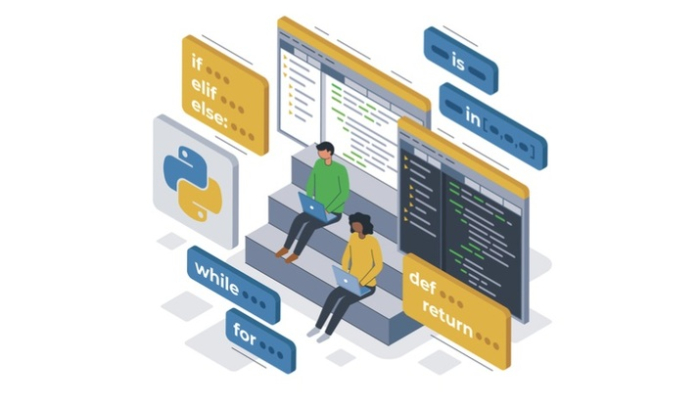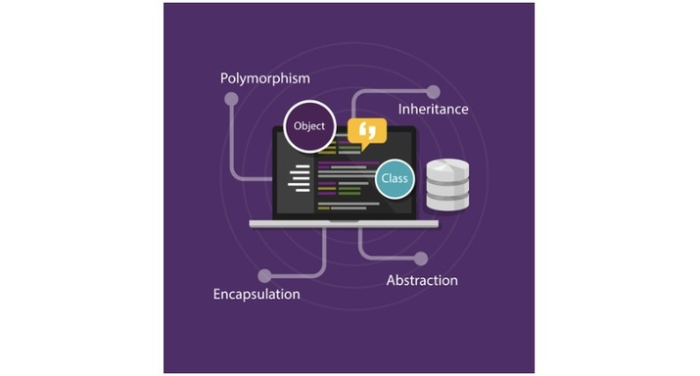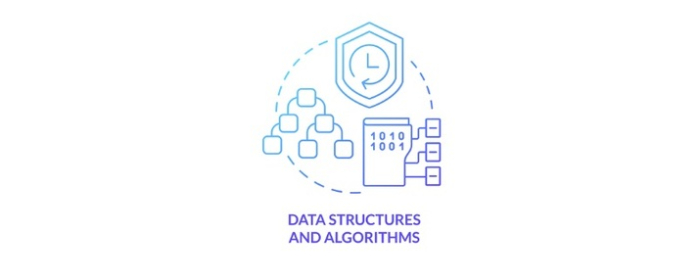
 Data Structure
Data Structure Networking
Networking RDBMS
RDBMS Operating System
Operating System Java
Java MS Excel
MS Excel iOS
iOS HTML
HTML CSS
CSS Android
Android Python
Python C Programming
C Programming C++
C++ C#
C# MongoDB
MongoDB MySQL
MySQL Javascript
Javascript PHP
PHP
- Selected Reading
- UPSC IAS Exams Notes
- Developer's Best Practices
- Questions and Answers
- Effective Resume Writing
- HR Interview Questions
- Computer Glossary
- Who is Who
How should I prepare for a Python interview?
In this article, we will learn How should we prepare for a Python interview in order to get a good job.
Python has become the world's most popular programming language and is one of the most in? demand languages among companies. It is a high? level interpreted programming language that is frequently used. Its design philosophy prioritizes code readability, and its syntax enables programmers to express concepts in fewer lines of code than in languages like C++ or Java. The language includes elements that allow for understandable programs on both a small and large scale.
As a result, if you're a Python coder, you'll encounter tough competition when searching for a job. It is critical to be well prepared in order to enhance your chances of landing an interview. Furthermore, if you are a data scientist, these suggestions will be beneficial. The following are some tips for preparing for a Python interview.
Understand the Basics
This may sound obvious, but it is critical that you understand the basics of Python. This implies being able to write code without the assistance of external resources such as books or online tutorials. Employers will want to see that you have a solid command of the language and that you can operate independently. A smart approach to put your knowledge to the test is to solve problems without using the internet. Here are a few questions to familiarise yourself with ?
What are some of Python's key features?
What's the difference between Python 2 and Python 3?
What are some of the most common Python programming mistakes?
What are some of the most popular Python IDEs that you have used?
When studying Python programming, there are numerous crucial topics to cover. Questions about these topics can be asked. Among the important topics are ?
Data types and structures ? Understanding data types and structures are essential for effectively storing and manipulating data.
Object?oriented programming ? Object?oriented programming is a strong programming paradigm that can assist you in writing cleaner, more reusable code. In Python, everything is an object, and each object has its own set of attributes and methods. As a result, knowing how objects function is critical when dealing with Python.
Errors and Exceptions ? Understanding errors and exceptions is essential for efficiently debugging your programs.
Modules and libraries ? Modules and libraries are useful tools for extending the functionality of your programs.
Be Familiar with Various Libraries
Python offers a large number of libraries that can be used for a variety of purposes. When preparing for an interview, familiarise yourself with the most popular libraries as well as those related to the position you're applying for. For example, Brush up on your Pandas and NumPy skills, if you're applying for a data science position.

Interview questions about Python libraries are an important topic for interviewees. This is because it helps to evaluate your knowledge of the various Python libraries. The interviewer can ask questions regarding the most popular Python libraries, their functions, and how to use them. You should be able to describe the functionalities of the various Python libraries and demonstrate that they understand how to use them. The candidate should also be able to provide examples of how they have used these libraries in their work.
Here are a few questions to familiarise yourself with ?
What are some of the most popular Python third-party libraries with which you've worked?
What is the function of the os(operating system) library? What is the distinction between the modules 'os' and 'os.path'?
What functions does the 'math' module provide?
What does the 'collections' module include?
How would you go about accessing the 're' module?
What are the features of the pandas library?
How would you plot a line graph using the matplotlib library?
Understand Object- Oriented Programming(OOPs) Concepts
Employers frequently ask about concepts in object-oriented programming (OOP) such as inheritance, polymorphism, and encapsulation. Make certain that you understand and can explain these topics clearly. Attempt to write some code that displays your knowledge of OOP principles as well.

Here are a few questions you should practice ?
In Python, what are classes and objects? What are the differences between them?
In Python, how is an object instantiated?
In Python, how does inheritance work?
What exactly is multiple inheritance?
In Python, how does multiple inheritance work?
What is Python polymorphism? Give two or three examples.
What is the distinction between duck typing and static typing in Python?
Practice Data Structures and Algorithms
Data structures and algorithm questions are popular in Python interviews.

As a result, it's critical that you brush up on your knowledge in this field. Try solving some practice questions and then compare your answers to those in popular books or online tutorials.
Be Prepared to Answer Questions Regarding your Projects.
Prepare to discuss any relevant projects in your portfolio in detail during the interview process if you have any. Employers will be interested in learning about your participation in the project, the problems you faced, and how you overcame them. They may also ask you to guide them through your code, so familiarise yourself with it before the interview.
Do's and Don't's
Do's
Know the basics of how to control Python.
Make use of list comprehension.
Technical understanding of the Object? Oriented programming concept.
Understand how to use the generators.
Code practice on the whitepaper and soft board.
Prepare yourself so that you can explain.
Don't's
Avoid studying excessively.
Don't avoid coding questions thrown your way by the interviewer.
Do not argue with the interviewer.
Codes should not be memorized.
Be sure of what you're saying.
Do not be impolite.
Conclusion
While the competition for Python jobs is high, there are steps you can take to improve your chances of getting an interview. First and foremost, ensure that you understand the fundamentals of the language. Second, become acquainted with the various libraries available in Python. Third, grasp object-oriented programming ideas well enough to express them effectively and develop code that illustrates this expertise. Fourth, practice data structures and algorithms so you can confidently respond to inquiries about them during an interview. Fifth, be ready to discuss any related projects in your portfolio. You'll be well on your way to impressing potential employers and securing that ideal job if you follow these guidelines.

